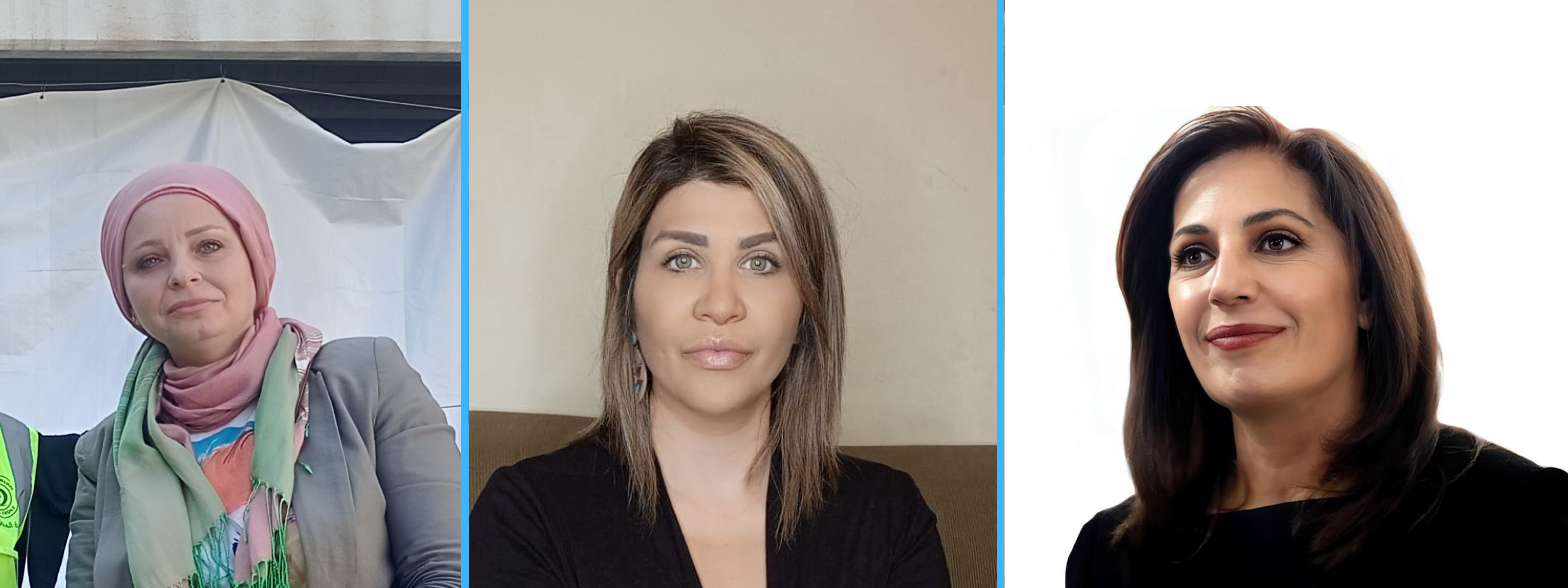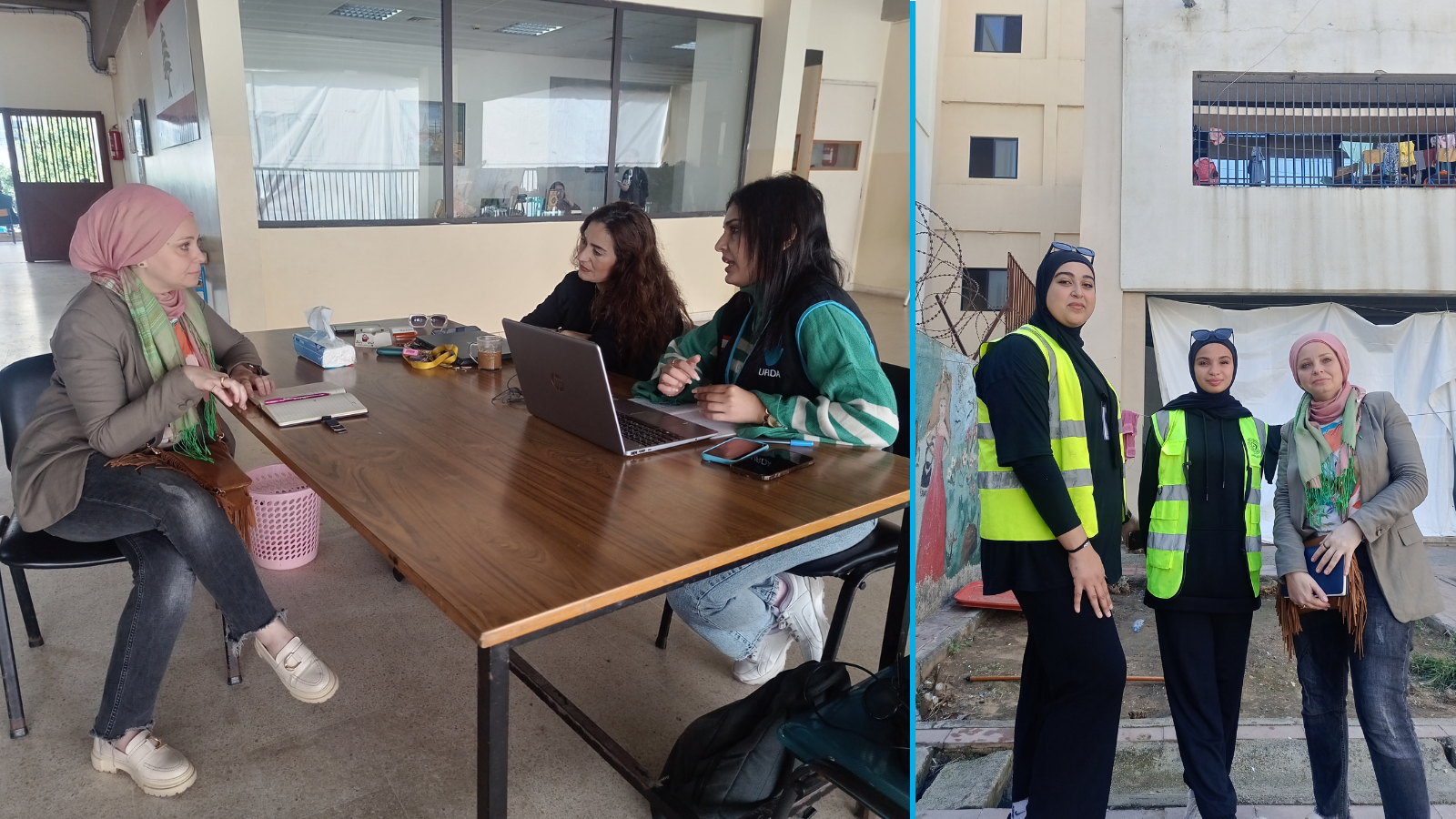Lebanese Women Leaders Ensuring Women’s Needs Are Met
Date:
Amid the intensifying conflict and growing number of internally displaced people in Lebanon, women social activists and politicians are leading various efforts to ensure that the humanitarian response is not blind to women’s needs. Three of these women share their experiences as ‘women focal points’ for the Fiftyfifty civil society organization under a UN Women political participation project funded by the United Kingdom.
Most of the 70 women leaders, focal points for Fiftyfifty, who are politically and socially active in their local communities had been initially engaged in training sessions and workshops in preparation for local and parliamentary elections. Now, they are, like Guitta Ojeil, 57 - a dedicated politician and social activist from West Bekaa- assuming important responsibilities in addressing the conflict.
Ojeil first got involved in politics in 2004, running for and winning municipal elections in Beit Lahya, Rashaya El Wadi. However, she has been politically active before 2004 and received various trainings including through an earlier UN Women project, also funded by the UK in 2022.
Observing the many challenges faced by her community, particularly by the elderly, Ojeil established a social and development organization focused on seniors, called Cles De La Patience. Amid the current escalation, she is taking on significant roles in responding to the needs, helping Internally displaced populations who have relocated to shelters, and supporting hosting families. Ojeil is working to assist the displaced, and older women in particular.
“Women in particular struggle with adapting to new environments,” she says. “Raising children in these settings has been challenging, and displaced mothers often feel they are losing control over their children. Additionally, pregnant women face difficulties in obtaining necessary medication and maintaining regular check-ups with doctors.”
At the same time, Ojeil says their stories of resilience have profoundly impacted and inspired her.

With the conflict’s recent escalation, long-time social activist Nahila Salameh decided to ensure women’s sanitary products were available for the displaced. Back in 2021, the 43-year-old from Beirut launched a campaign to stop menstrual shaming and secure access through financial support for women’s sanitary pads.
“Since this war started, I came back and launched a new campaign in the Beirut area to support displaced women and send a message to remind the community of the importance of sanitary pads,” she says. “Women are also losing their privacy and their freedom to do their daily activities.”
As the conflict escalated, her campaign expanded to cover women’s need for food, baby formula, clothing, blankets, etc.
Salameh says her role with Fiftyfifty is helping to build trust. “There is a satisfaction from displaced families in dealing with women focal points. They feel more relieved and able to express their problems, fears and worries with them. This trust bridge that was built between society and women focal points has helped my colleagues and I to continue supporting more than 30 families across Beirut.”
Salameh says one of her main challenges now is in securing funding. “What concerns me is how I will be able to continue supporting people if the war continues for months, and where will I be able to obtain the daily needed items for them. There are also insufficient bathrooms, because the shelters are very crowded and the number of bathrooms is very limited. This is besides the severe water shortage.”

Amani Abou Zeinab, a 44-year-old mother from Saida, began doing social work in her local community in 2017, later beginning political activism during the 17 October 2019 protests in Saida.
Since the outbreak of the recent conflict, she’s been collaborating with Fiftyfifty and local contacts across 22 shelters in Saida to create a community-driven initiative to support displaced individuals. These shelters currently house around 7,000 displaced people, with an additional 5,000 staying in private homes.
“Together with local movements and NGOs, my team and I set up a crisis management network to identify and address community needs. My role involves assessing daily needs for these families and coordinating the delivery of aid. My prior experience has been instrumental in efficiently identifying needs, planning communications, and securing donors and funds.”
Abou Zeinab says obtaining hygiene kits is challenging because of social and cultural barriers. Privacy is another issue, especially for veiled women, and the limited number of bathrooms in the shelters only exacerbates the situation. Pregnant women also face many specific struggles, due to the lack of adequate support in the shelters, especially since many of them are from different regions and lack connections in their new surroundings.
“I will never forget a first-time pregnant woman who had to move to a shelter due to the conflict,” she recalls. “The woman was emotionally distressed, having prepared a nursery for her baby only to leave everything behind. I decided to stay by her side until she gave birth, coordinating with local contacts to identify hospitals and doctors willing to help. When the time came, I accompanied her to the hospital, creating one of my most touching memories. I felt the mother’s deepest gratitude for my support.”
Abou Zeinab says the community has been highly supportive. Besides assisting women, she says men are also talking openly about their concerns with, and welcoming the presence of, women focal points.
“Having people’s trust motivates me. They want me standing next to them, so this has left me with no choice but to stand next to them and support them until the end. This war is very different from anything I have faced before. But I believe that this war will make the Lebanese closer to one another.”